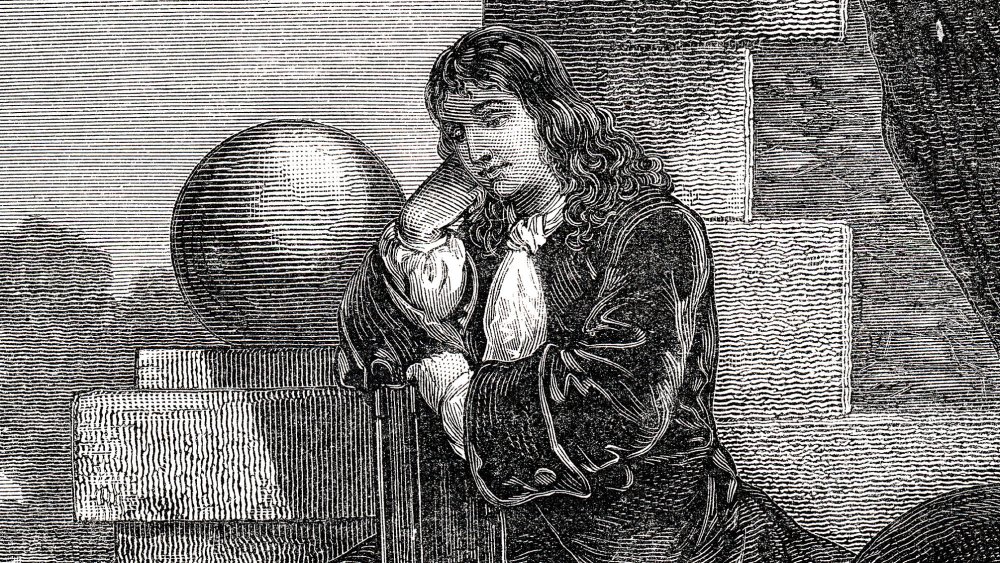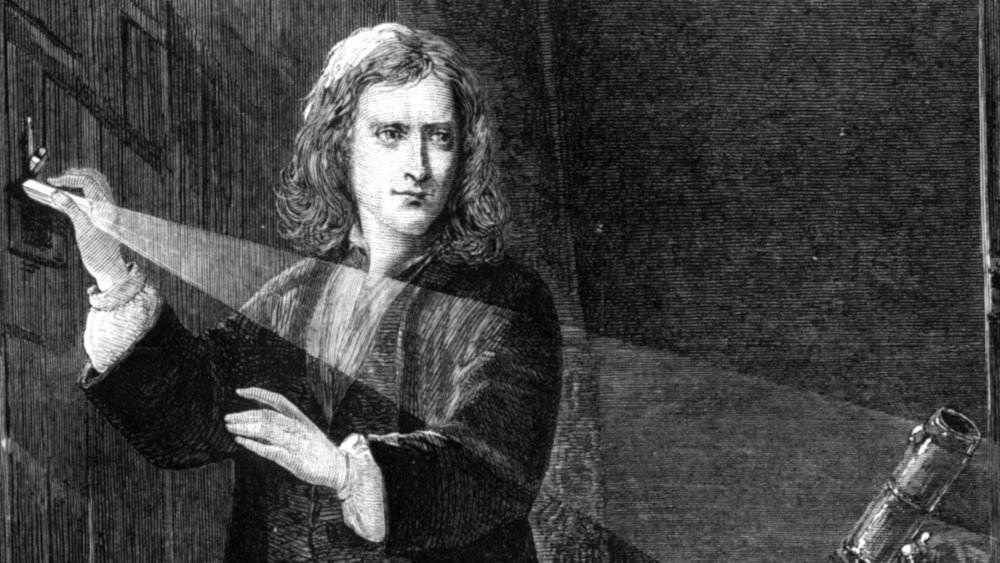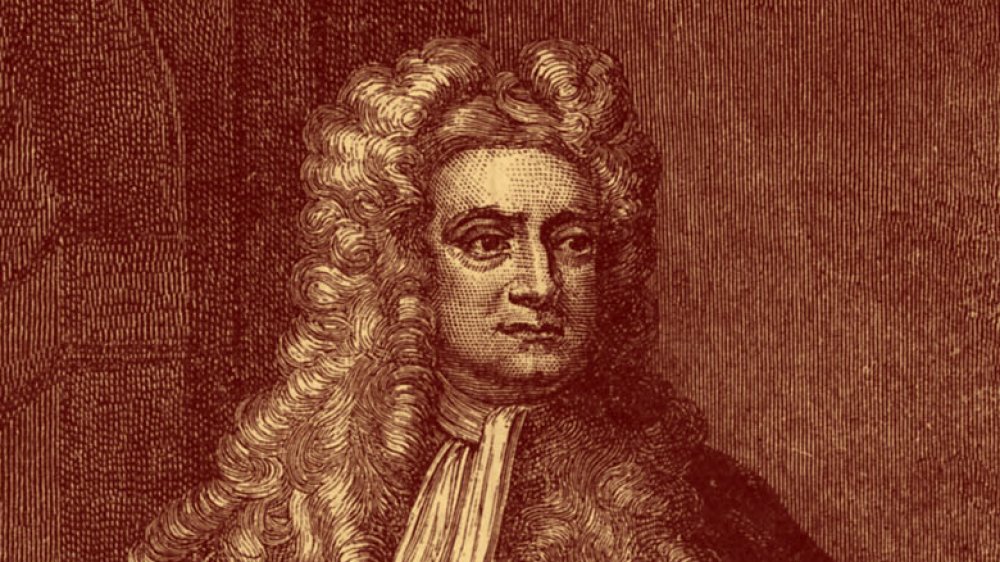Strange Things You Probably Didn't Know About Isaac Newton
It would be kind of cool if the Fig Newton, part of the pantheon of America's snack foods, was named for Sir Isaac Newton. At least Apple Newtons, anyway. But no. They're named for Newton, Massachusetts, says ThoughtCo. Sir Isaac is known for a number of other things — like that story of the apple falling on his head and he, in effect, responding, "Gravity. Sweet." (It was a little more complicated.)
Newton's claims to fame are unbelievably numerous, so please don't berate yourself if you're confused. Even his date of birth is confusing — he was born on Christmas Day, 1642, in Lincolnshire, England, but the country was still using the Julian Calendar in those days. The Gregorian Calendar went into effect in England in 1752, reports Mental Floss, and when that happened there was kind of a 11-day stutter-step on dates, and Newton's birthday shifted to January 4, 1643.
Newton was truly brilliant from the get-go, with his remarkable intelligence — and, let's be honest, eccentricity — on full display even as a student. History Collection relates stories of his eating and sleeping habits — or lack of them; he'd often become so wrapped up in whatever problem he was solving that he would literally forget to eat or sleep. His unwanted, and now cold, supper, still on his table, often sufficed for breakfast. If he remembered to eat at all.
Newton revolutionized our understanding of physics
He's probably most famous for the apple/gravity incident and — we hate to break it to you — it didn't happen. He was not sitting under an apple tree; by his own account, he was looking out of his window and saw the fruit fall, and there are plenty of doubters about that version even today. It's indisputable that he made enormous contributions to the study of physics — his book Mathematical Principles of Natural Philosophy is one of the most influential texts ever written on the subject, according to Biography. He explained the laws of motion and of gravity (why did the apple fall straight down, and not at an angle?), explored optics and light, and contributed to the development of calculus as well.
He didn't much enjoy the company of other people, preferring to keep to himself and his studies. He twice served briefly as a member of Parliament, but spoke only once: to ask a fellow member to adjust a window. Part of that might have been his stutter; part of it might have been his intense ability to concentrate for long periods of time, to the exclusion of both bodily and emotional needs. Newton also dabbled in alchemy — turning lead into gold, which he was convinced was a possibility (and in his defense, he wasn't the only one).
He was an academic, a researcher, and a public servant
Some of his lab work involved mercury, which we know now is highly toxic. In 1979 some of Newton's hair was analyzed, and astronomical amounts of mercury were found there, says Mental Floss. In the argument against, he still had a head of hair, which would not have been the case had he suffered from mercury poisoning. Still, his behaviors became more eccentric, even erratic, as he grew older. He was quite a hypochondriac, according to History Collection; rarely expressed emotion, beyond an occasional temper tantrum; had virtually no sense of humor. With everything we know of the man taken into consideration, there are those who would posit that he was autistic — specifically, Asperger's, says the Royal Society Publishing. Others suggest he had periods of significant depression; some see him as bipolar. He never married, and in fact would complain when friends tried to play matchmaker for him. He preferred his studies.
He served the nation as Master of the Royal Mint, says All That's Interesting, and seems to have taken the appointment quite seriously — prosecuting counterfeiters and moving the British pound from the silver standard to the gold standard. Queen Anne knighted him in 1705.
Newton lived a long and fruitful life. He had been residing with a niece in London when he died in his sleep at the age of 84. He is buried in Westminster Abbey.


